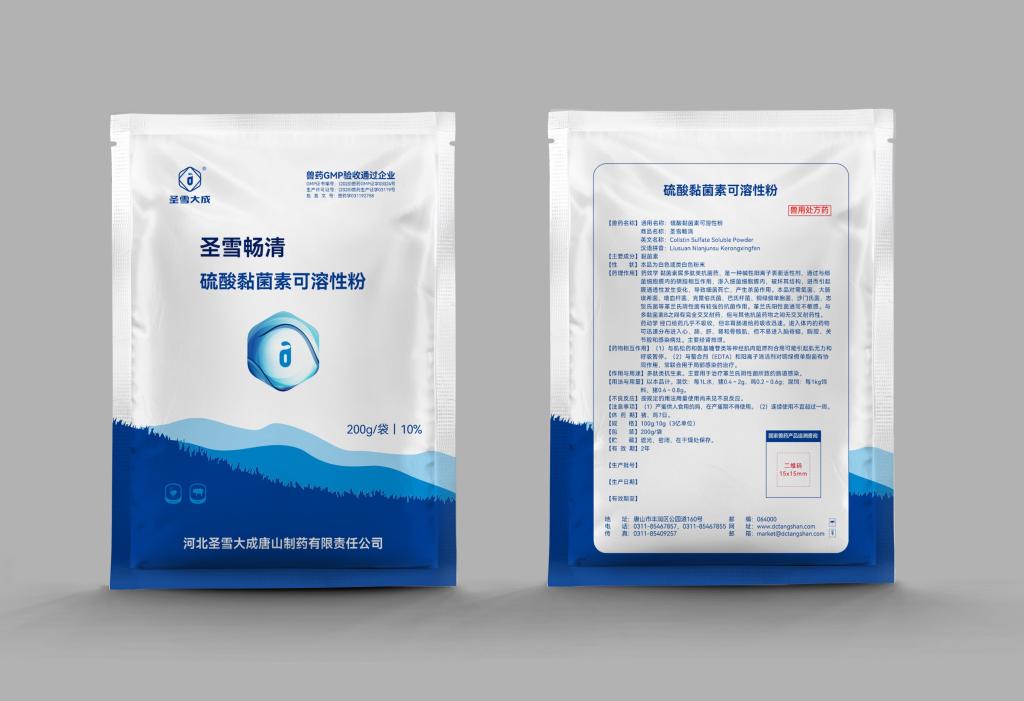Tel:+8618231198596

News
 CONTACT
CONTACT
 CONTACT
CONTACT
- Linkman:Linda Yao
- Tel: +8618231198596
- Email:linda.yao@dcpharma.cn
- Linkman:CHARLES.WANG
- Department:Overseas
- Tel: 0086 0311-85537378 0086 0311-85539701
News
Current Position:
Home >
News
>Balancing Act: Colistin Sulfate Soluble Powder's Role in One Health Initiatives.
Balancing Act: Colistin Sulfate Soluble Powder's Role in One Health Initiatives.
TIME:2024-01-05
Introduction:
Antimicrobial resistance poses a significant threat to public health, animal health, and the environment. The interconnectedness of these domains is encapsulated in the One Health approach, which recognizes the interdependence of human, animal, and environmental health. Colistin sulfate soluble powder, a last-resort antibiotic, has played a pivotal role in combating bacterial infections in both human and veterinary medicine. However, its overuse and misuse have raised concerns about the development of resistant strains. This article aims to examine the delicate balance required in the use of colistin within the broader context of One Health initiatives.
Section 1: Colistin Sulfate - A Last Resort Antibiotic
Colistin sulfate, originally isolated from the bacterium Bacillus polymyxa, has gained prominence as a last-resort antibiotic for treating multidrug-resistant Gram-negative bacterial infections. Its mechanism of action, pharmacokinetics, and broad-spectrum activity make it indispensable in critical medical and veterinary situations. Understanding the unique attributes of colistin sets the stage for evaluating its role in the One Health paradigm.
Section 2: One Health - A Holistic Approach to Combat AMR
The One Health concept emphasizes the interconnectedness of human, animal, and environmental health. The collaborative efforts of healthcare professionals, veterinarians, environmental scientists, and policymakers are essential to address the complex issue of antimicrobial resistance. Examining the pillars of One Health provides a framework for assessing the role of colistin sulfate in sustainable antimicrobial stewardship.
Section 3: The Threat of Antimicrobial Resistance
Antimicrobial resistance undermines the efficacy of existing treatments, leading to increased morbidity, mortality, and economic burden. The overuse and misuse of antibiotics, including colistin sulfate, contribute to the emergence of resistant strains. This section explores the consequences of AMR and the urgency in adopting responsible practices across human, animal, and environmental domains.
Section 4: Colistin Sulfate Usage in Veterinary Medicine
The veterinary sector plays a crucial role in the One Health initiative, with the use of antibiotics in animal husbandry influencing the spread of resistant bacteria. Colistin sulfate, employed in veterinary medicine to combat bacterial infections in livestock, raises concerns about its impact on resistance development. This section evaluates the challenges and opportunities associated with colistin use in animal health.
Section 5: Responsible Use of Colistin in Human Medicine
In human medicine, colistin sulfate serves as a last line of defense against resistant bacterial infections. Balancing the need for effective treatment with the risk of resistance requires a nuanced approach. This section discusses strategies for responsible colistin use in clinical settings, including dosing regimens, surveillance, and alternative therapies.
Section 6: Environmental Considerations
The environmental dimension of One Health cannot be overlooked. Antibiotic residues from various sources, including agricultural runoff and pharmaceutical manufacturing, contribute to environmental contamination. This section explores the potential environmental impact of colistin sulfate and strategies to mitigate its presence in ecosystems.
Section 7: Regulatory Measures and Global Cooperation
Addressing the challenges associated with colistin sulfate requires international collaboration and robust regulatory measures. This section examines existing regulations, their effectiveness, and proposes avenues for enhanced global cooperation to ensure the sustainable use of colistin within the One Health framework.
Conclusion:
In the intricate web of One Health initiatives, the role of colistin sulfate soluble powder demands careful consideration. Balancing the urgent need for effective treatment with the looming threat of antimicrobial resistance requires a comprehensive and collaborative approach. Through responsible use, regulatory measures, and global cooperation, the delicate equilibrium required for sustainable antimicrobial practices within the One Health paradigm can be achieved, ensuring a healthier future for humans, animals, and the environment.
- Tel:+8618231198596
- Whatsapp:18231198596
- Chat With Skype







